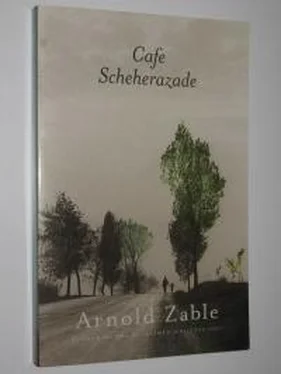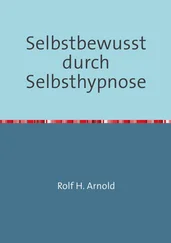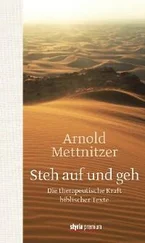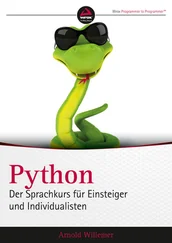Arnold Zable - Cafe Scheherazade
Здесь есть возможность читать онлайн «Arnold Zable - Cafe Scheherazade» весь текст электронной книги совершенно бесплатно (целиком полную версию без сокращений). В некоторых случаях можно слушать аудио, скачать через торрент в формате fb2 и присутствует краткое содержание. Город: Melbourne, Год выпуска: 2001, Издательство: Text Publishing Company, Жанр: Проза, на английском языке. Описание произведения, (предисловие) а так же отзывы посетителей доступны на портале библиотеки ЛибКат.
- Название:Cafe Scheherazade
- Автор:
- Издательство:Text Publishing Company
- Жанр:
- Год:2001
- Город:Melbourne
- ISBN:нет данных
- Рейтинг книги:4 / 5. Голосов: 1
-
Избранное:Добавить в избранное
- Отзывы:
-
Ваша оценка:
- 80
- 1
- 2
- 3
- 4
- 5
Cafe Scheherazade: краткое содержание, описание и аннотация
Предлагаем к чтению аннотацию, описание, краткое содержание или предисловие (зависит от того, что написал сам автор книги «Cafe Scheherazade»). Если вы не нашли необходимую информацию о книге — напишите в комментариях, мы постараемся отыскать её.
Cafe Scheherazade — читать онлайн бесплатно полную книгу (весь текст) целиком
Ниже представлен текст книги, разбитый по страницам. Система сохранения места последней прочитанной страницы, позволяет с удобством читать онлайн бесплатно книгу «Cafe Scheherazade», без необходимости каждый раз заново искать на чём Вы остановились. Поставьте закладку, и сможете в любой момент перейти на страницу, на которой закончили чтение.
Интервал:
Закладка:
"Why only one?" Laizer asks. "Where is mother? Where is my brother, Heniek? Where is my sister, Khannah?"
Laizer's father cannot answer. He has slumped forwards. He no longer moves. His face is gone. Laizer searches for the familiar details. For the look of merriment that once encircled his father's eyes; the knowing smile that had comforted him as a child; but all that remains is the elusive silhouette of an old man, his head resting upon the table, buried in his arms.
It was only much later, when he returned to the city of rubble that had once been his home, that Laizer came to know: his father and mother, his sister and brother, perished, in a furnace of gas, at about the time when he first dreamed his recurring dream.
He remained the one survivor of an entire family.
::::::::::::
90 v
Zalman clings to the sea. He walks to his familiar markers. He ascends the shallow peak of Ormond Hill. In the distance, he can just make out the mountains of the Great Divide; it rises above the flat hinterland, an ancient presence, barely visible on this autumn day. It takes his breath away, this expansive view of the bay; and, as always, when he descends he feels weightless.
Zalman strides against the southerly wind; it is a scorpion wind.
It penetrates the marrow and enflames the eyes. He notes the full tide. The waters surge onto the rocks. The spray leaps over the retaining wall. He skirts the yachting marina, veers 91 back towards the lighthouse, and regains the shore. He scans the full sweep of the bay, from the marina to St Kilda pier. Beyond it rises the inner city, a huddle of office towers looming over a basalt plain.
It is a daily ritual, this walk, a means of regaining the feet, of restoring the present. And there are days of silver and white, of frost and muted light, on which Zalman can sense, acutely, that he lives in a city of the south.
He sits on the beach with his back to the bluestone retaining wall, and gazes at the waters of the bay. The sky hangs low, lidded with clouds. Occasionally the sun forces its way through
92 the grey, forging a gap of transparent blue. As the sun moves back out of sight, the day is restored to pastel shades. The horizon is a faint grey line. Sky and sea are one continuum of light; and the imagination takes flight.
On the wings of a seabird Zalman glides towards the south. Over desolate islands he swoops; over rockeries teeming with hooded gannets and Pacific gulls; across stony outcrops littered with penguins and seals; over southern whales heaving their bulk through glacial waves.
He is moving towards the Antarctic, the great southern bight. He is curving towards the white-domed apex of the globe. He hears the shriek of a tern, and the drone of traffic on The Esplanade.
And he is back by the retaining wall, on the city's edge, perched on its southern fringe.
Zalman savours the moment. He inhales the aroma of sea air, feels the cool texture of damp sand, and allows his back to sink into his rolled-up jacket, his makeshift pillow against the blue-stone wall.
"Such moments are the key," he tells me in the cafe. "At such times I always marvel that it is possible for me to feel so much at ease. In such moments all journeys come to a blessed end."
We meet mid-week, in the afternoons. The quiet hours. When
Scheherazade is almost deserted. When old men doze at their newspapers, and waitresses lean on their elbows to stare at passersby, the Acland Street regulars, the down-at-heel and outof-work. 93
It was Zalman who asked for these mid-week meetings. "I can only talk one to one. I need quiet in which to remember, to probe beneath the surface of things. When there are too many people around me, I become an observer. I enjoy the company for company's sake, but I have no interest in joining in. I have never been a good shouter."
Zalman speaks softly, weighing each thought, each word. As if no sentence is worth uttering unless it reveals a deeper truth; as if he is in search of lost meanings, a fractured ideal, an elusive thread.
"Martin, we were all trapped," he says. "What choice did we have?
We had to rely on the decisions of others, on those who controlled our lives. Each day the news was more alarming. We sat in Wolfke's and waited, clinging to rumours. We sat in Wolfke's and watched the world spiral towards evil.
"It was a time when those who committed evil flourished and, once set in motion, evil begets evil. Yet amidst this evil there arose a rare saviour, like a flower emerging out of garbage.
"His name was Chiune Sugihara. He was a Japanese consul, based in the city of Kovno, 150 kilometres west of Vilna. He was willing to stamp our visas with permits that would enable us to buy our way out. So it was said. We could not believe that someone would be prepared to do such a thing, especially at that time. It was a complex procedure, full of danger. But it gave us a slim chance, a way out of our netherworld."
Zalman pauses. Sips his black coffee. He relishes each drop. "In every darkness there is a spark. This is what the sages have 94 always maintained," he says. "And in the Lithuanian city of Kovno a young yeshiva student called Nathan Gutwirth was driven by desperation to find such a spark."
Zalman knows the tale well. He has researched the details in his retirement years. Born in Belgium, raised in Holland, armed with a Dutch passport, Gutwirth had become aware of the extent of Nazi brutality from the final letters of his mother. She had witnessed the German occupation of Holland. "Do not return home," she warned her son. "Find a way to escape."
At the outset of July 1940, Nathan wrote to the nearest Dutch ambassador, who was stationed in Riga. Could he authorise an entry permit for Curaçao, a Dutch colony in the Caribbean Sea?
Nathan had heard that a visa was not necessary for Curaçao. In subsequent correspondence, the ambassador agreed to instruct every Dutch consul in Lithuania to stamp the identity papers of any refugee, regardless of nationality.
The honorary Dutch consul in Kovno provided Gutwirth with the desired stamp: "No Visa to Curaçao Required", it proclaimed. This was the first step. But how to get out of Vilna? And how to get out of that empire called the Soviet Union?
The least dangerous escape route was via the east. Gutwirth approached Chiune Sugihara. The consul thought it odd that no visa was required for Curaçao, but he stamped the passport, nevertheless, with a visa that allowed Gutwirth a three-week stay in Japan while in transit between any two countries.
This news spread on the refugee grapevine, via the soup 95 kitchens and coffee shops, boarding houses and synagogue courtyards, the crowded apartments and communal halls, the many random spaces into which those who had fled Hitler's armies were crammed.
Zalman Grintraum was among the many hopefuls who travelled from
Vilna to Kovno in search of a way out. After they obtained the stamp. "No Visa to Curaçao Required", from the Dutch consul, they gathered at the gates of Sugihara's residence. And years later, in a cafe on the opposite side of the globe, Zalman was to tell me that what struck him most about that August morning in 1940 was the silence.
It was a silence that seems to envelop consulates the world over, signifying order, legal procedures, civilised dealings. And for those who stood that morning by the consulate gates, it was also the silence of the desperate, imbued by a longing that was obvious to the Japanese consul as he gazed at the crowd from the window of an upper floor.
Sugihara had sent cables to Tokyo asking permission to issue transit visas for Japan. The replies were ambiguous. He was cautioned, advised to exercise restraint. It is said that he was finally swayed by the words of a Samurai maxim: "Even a hunter cannot kill a bird that flies to him for refuge."
Читать дальшеИнтервал:
Закладка:
Похожие книги на «Cafe Scheherazade»
Представляем Вашему вниманию похожие книги на «Cafe Scheherazade» списком для выбора. Мы отобрали схожую по названию и смыслу литературу в надежде предоставить читателям больше вариантов отыскать новые, интересные, ещё непрочитанные произведения.
Обсуждение, отзывы о книге «Cafe Scheherazade» и просто собственные мнения читателей. Оставьте ваши комментарии, напишите, что Вы думаете о произведении, его смысле или главных героях. Укажите что конкретно понравилось, а что нет, и почему Вы так считаете.












